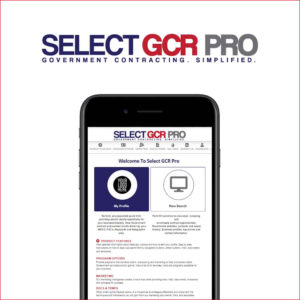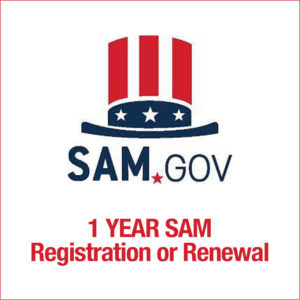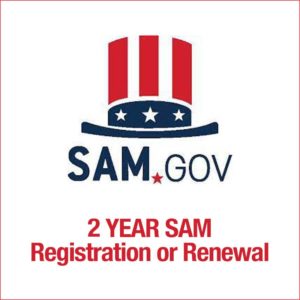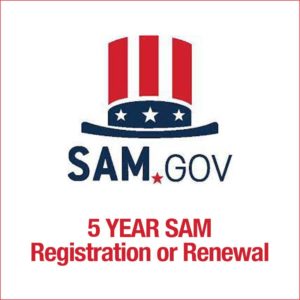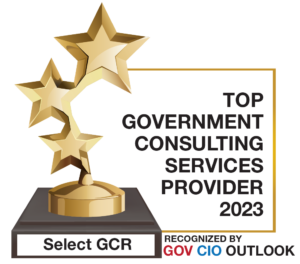Engaging with government contracting officers is a crucial step for small businesses looking to explore upcoming opportunities in government contracting for 2024. To effectively communicate with a contracting officer and position your small business, consider the following 10 steps:
1. Research and Preparation:
You should always prepare yourself before speaking with the contracting officer. Review previous contracts awarded by the agency to understand their needs and preferences. Research any publicly available information about the agency’s upcoming projects for 2024. Ensure your capabilities are in line with the contracting officer’s needs and your NAICS and PSC codes are all displayed accurately according to the requirements of the contract you wish to talk about.
2. Identify the Right Contacts:
Find out who the relevant contracting officer is for the projects you are interested in. Utilizing software such as Select GCR Pro can quickly give you the information you need to contact the correct people. This proprietary software was designed to compile all contacts and contracts into one easy to use platform. The different search options and filter features make it easy to navigate to the appropriate information.
Some agencies have designated small business liaison officers; utilizing the agency’s website, you’ll need to find the right contact to request assistance. Liaison officers help small businesses facilitate the proposal process and secure awards.
3. Craft a Compelling Introduction:
Clearly articulate what your small business brings to the table and how it aligns with the agency’s needs. Use terminology that is relevant to your industry and use it correctly. You want this section to be short and to the point with a confident reason as to why they should choose your business. Make your key strengths and capabilities the main focus.
4. Request an Introductory Meeting:
Next you should draft a polite and professional email introducing your business and expressing interest in a meeting. Be respectful of your contact’s time and keep the email brief. Use your introduction and mention how your services or products can benefit the agency and contribute to their mission.

5. Prepare for the Meeting:
Anticipate the agency’s needs based on your research and tailor your presentation accordingly. Ensure what you talk about is relevant to your NAICS/PSC codes. It must be in line with both codes so make sure you are thorough in selecting your NAICS and PSCs. These codes also have to match your SAM profile, so optimize that as necessary.
At this point, draft a capability statement summarizing your business’s qualifications, experience, and certifications. Tailor it to the needs of the agency based on your research. Make sure you include your NAICS and PSC codes, contact information, capabilities, and differentiators. You’ll also want to put any past performances on your capabilities statement. Keep the document to one page and legible with proper grammar.
6. During the Meeting:
Allow the contracting officer to share their insights and needs. Be mindful during the meeting and not distracted. Seek clarification on upcoming opportunities and the agency’s procurement process. Highlight past performances by sharing relevant success stories or projects that demonstrate your competence.
Emphasize small business certifications. If your business holds certifications (e.g., 8(a), SDVOSB, WOSB), mention these to highlight your eligibility for set-aside contracts. Explain how contracting with your small business will fulfill your obligations to meeting set-aside goals. You can also mention how contracting with a small business can often simplify and expedite the procurement process.
7. Follow Up:
Express gratitude by sending a thank-you email after the meeting. Clarify the next steps in their procurement process. Politely inquire if there are specific forms or documentation they need from your business. You can attach your capabilities statement, so you know they have it at the top of their inbox.

8. Stay Informed and Persistent:
Stay informed about any updates or changes in the agency’s plans or requirements. Utilize the agency’s website and industry news feeds and blogs. Then periodically check in with the contracting officer to express continued interest and provide updates on your business.
9. Networking and Industry Events:
Attend events to network with prime contractors and contracting officers. Participate in industry conferences, webinars, and events where you can interact with contracting officers and gain insights into upcoming opportunities. Build relationships with other businesses in your industry and government contracting professionals. Becoming successful in government contracting depends heavily on the connections you make by networking.
10. Continuous Improvement:
Seek feedback on your interactions to continuously improve your approach. Ask for a debrief meeting so you can find out why your business did not win the bid. Change your tactics and go at it again. The worst that can happen is you get turned down. Don’t give up. Just adapt based on the feedback you receive.


